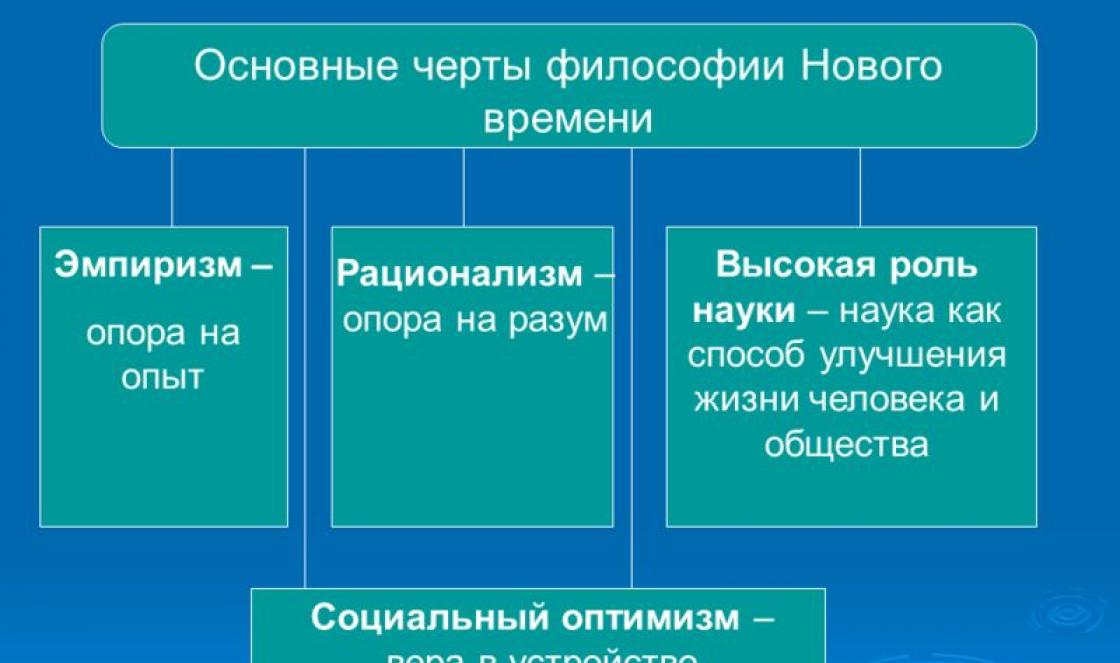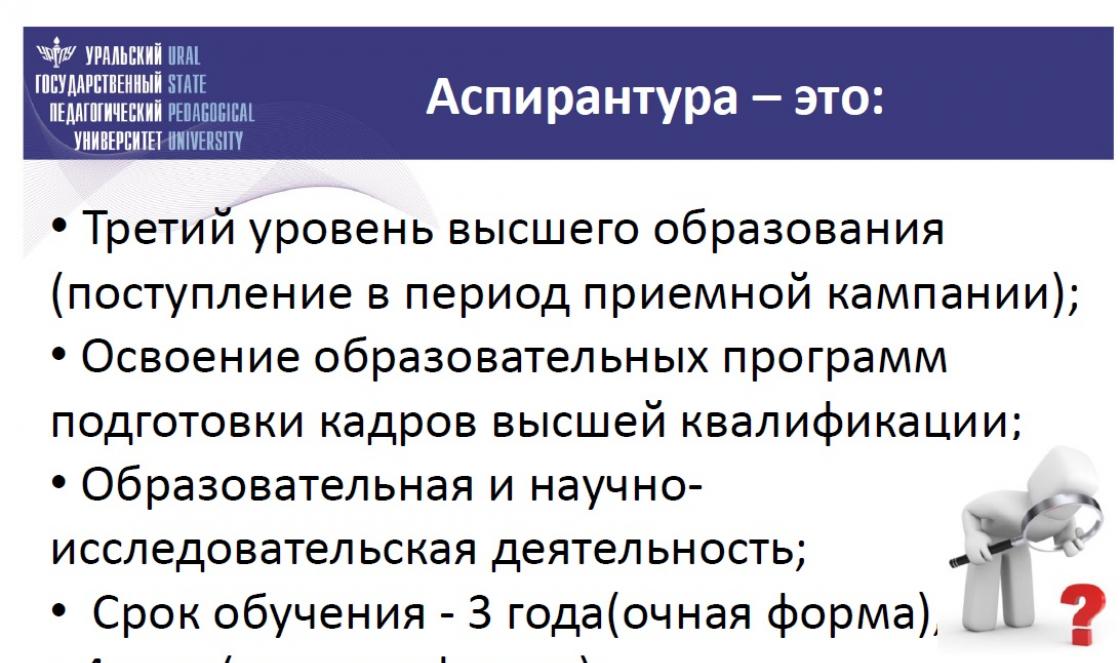During the reign of Henry III (1216–1272) in England Parliament was born which made the royal power limited. Henry III was a sovereign who loved flattery and generously awarded positions and lands for it. The people closest to him were foreigners entering the royal service, numerous knights from France and quite big number spiritual ones from Italy, who were sent to England by the popes. All the behavior of the king and his foreign favorites was very disliked English nation, formed in the middle of the XIII century. from the fusion of the Normans with the Anglo-Saxons. Prelates, barons, knights, and townspeople united in opposition against the king. Henry III convened several times congresses of prelates and barons("great councils"), which for the most part sharply condemned his policies. main role played in this opposition Simon Montfort, a Frenchman by birth (his father was a leader in a crusade against the Albigensians), who moved to England, where he received the title of Earl of Leicester and married the king's sister. Having quarreled with Henry III, this talented and energetic nobleman went over to the side English barons and even became their leader. First, the larger barons at the "great council" in Oxford(1258) forced the king to admit over himself guardianship of a special committee of 24 barons, but the petty barons and knights were dissatisfied with such an oligarchic form of government and began to complain about its establishment. Henry III refused to fulfill this promise, but Simon Montfort went to war with him, took him prisoner and became the ruler of England. Distinguished by his great statesmanship, he saw, however, that the big barons alone would not be able to organize the government of the country, and therefore, convening V 1265 on behalf of the king "great council", he invited him not only prelates and barons, but also representatives of shires (counties) and cities(two representatives from each county and the most important cities). This was first English Parliament. By inviting chivalry and townspeople to participate in the reign, Simon incurred the displeasure of large barons. They went over to the side of the king, and the eldest son of Henry III (Edward) escaped from captivity and became the head of the disaffected. Simon Montfort was defeated and killed in a battle with the royal army, but the measure he invented, that is, convening for "great councils", in addition to prelates and barons, also chivalry and townspeople, came into force, and Parliament in England has existed continuously for more than six centuries.
183. Structure of Parliament
The English Parliament was divided into two chambers: upper or chamber of peers(lords), and lower or house of commons. This division, which still exists today, finally took shape only in the middle of the 14th century, eighty years after the first parliament was convened. became members of the upper house bishops, abbots And major vassals of the king, of which each sat in it by virtue of his personal right, moreover, the title of secular lord began to pass by inheritance to the eldest son. The lower house was formed from elected representatives from both petty royal vassals and knights, i.e. subvassals, and from the free population of the counties and cities. In the counties (shares), representatives were chosen at meetings that existed even earlier for various local affairs and for the court, and here it happened the merging of petty feudal lords with the rest of the free population. The House of Commons became chamber of all estates, and in this the English parliament from the very beginning began to differ from other similar assemblies that arose about the same time in various states of the West, where each estate sat separately. (And the higher clergy and the higher nobility sat together in the upper chamber).
This is the symbol of Great Britain.
Where and when did Parliament appear in England? This article will present Short story the creation of this authority, although it takes a rather long period of development of the state. But first, let's look at the origin of the term itself.
Definition of the word "parliament"
Before we find out where and when the parliament appeared in England, let's try to determine the meaning of the word "parliament". There are two main theories about the origin of the term. According to the first of them, the English "parliament" was obtained by combining 2 Latin words:
- "parium", meaning "equal" or "parity";
- "lamentum" - "weeping, complaint".
That is, parliament is a place where you can file a complaint with people of equal status.
According to the second theory, the term "parliament" is derived from 2 French words:
- "parler" (translated as "conversation");
- "ment", meaning "judgment".
It turns out that parliament is a place where opinions are exchanged, they have a conversation, they express their point of view.
In connection with the above differences in the origin of the term, scholars are still arguing about the time of the emergence of the 1st Parliament in England. Therefore, it can be said that there is no unequivocal answer to the question of where and when the parliament appeared in England.
In essence, parliament is one of the most common electoral authorities in many democratic countries. And it can be called differently. For example, in Russia it is the Duma, in Germany it is the Bundestag, in Israel it is the Knesset. The history of the emergence of such an authority in different countries followed almost the same rules.
About prerequisites
Using the example of Britain, let's try to briefly talk about where and when the parliament appeared. In England, the first prerequisites for the birth of an elective system can be traced from the moment when the Roman legionnaires began to retreat from these places. The stages of the formation of statehood passed very slowly, and royal power was rather weak. In connection with the development of cities, a new class was reborn - the bourgeoisie, who tried to defend their interests, as well as large landowners at the state level. The chronicles of some counties of England provide some evidence that noble knights, by decision of the sheriffs of the localities, went to advise the kings on taxation and other financial matters. Naturally, the kings did not need the thoughts of the townspeople and knights on this matter, full agreement with his opinion was strict. But sometimes he had to agree with the proposals of his subjects. Under such conditions in Western Europe representative assemblies began to arise, exerting a certain restraining effect on the growing appetites of monarchs. One of them and the Parliament in England.

The history of England closely links the origin of such an authority with the name of an influential person of that time - Simon de Montfort.
On the versions of the emergence of Parliament in England
Those who adhere more to the French version of the origin of the name of the government, believe that the first Parliament of England are the meetings convened by Alfred the Great at the end of the 9th century. But they are contradicted by representatives who adhere to the “autochthonous” version. According to them, the origin of Parliament in England is closely connected with the struggle between the king and the barons on the one hand and the knights and citizens on the other. And this event happened much later than the first - in the 2nd half of the XIII century.
The latter theory looks more plausible today, and it also has the majority of supporters. It turns out that the first English parliament arose in the XIII century.

Parliament in England
As a full-fledged body of power, Parliament began to function in the Middle Ages, from 1265. Representatives of the upper class of the clergy and the nobility of the titled received documents, and nominal ones, which gave them the opportunity to take part in parliamentary meetings. Ordinary townspeople and knights took part in its work by common invitation.
In the structure of the Parliament of England for 900 years, almost nothing has changed. And today, as before, it is divided into two chambers. The first is the House of Lords, which includes the descendants of those barons who participated in the "Furious Council" (1258 - a meeting of English aristocrats in Oxford, where Henry III was required to limit the power of the king). This includes representatives of the spiritual nobility and titled nobility. The lower house is the House of Commons. This includes representatives of the heirs of those who in those distant times took part in meetings by "general invitations". These are the descendants of wealthy citizens and knights.
Today, among the representatives of the House of Commons there are also deputies from the local nobility, whom the local people have entrusted to represent their interests in the capital.
IN modern world almost every state has its own parliament, which is necessary to express the interests of different sections of society. This system was one of the first to appear in medieval England.
The struggle of kings and feudal lords
In the 13th century, the island kingdom often suffered from civil wars and conflicts. One of the reasons for this disorder was the struggle between the royal power and the feudal estate. The barons and lords wanted to increase their influence on the state in order to take part in the government of the country.
Even under King John the Landless (reigned in 1199-1216), in 1215, this document appeared. This document was compiled with the participation of barons who wanted to receive new legal rights and protect your own privileges. The date of the emergence of the English parliament is closely connected with the charter, which was only the "first sign" in the long process of strengthening the feudal system in the state.
Henry III
John's son, Henry III, took the throne in 1216 as a child. A regency council ruled for him. Growing up, Henry began to pursue a tough policy aimed at strengthening royal power. The barons and other feudal lords, accustomed to the order of things enshrined in the Magna Carta, were extremely dissatisfied with the behavior of the monarch.
In addition, Henry III surrounded himself with foreigners, including the French, who were not tolerated in London. This behavior led to a deterioration in relations between him and his own nobility. The only arbiter in this conflict could be the Pope, the spiritual father of all Christians. With his cooperation, Henry promised the barons that he would abide by the terms of his father's Magna Carta, and also agreed to establish a parliament where representatives of the aristocracy would sit. So, in 1258, the Oxford agreements were concluded.
According to this document, the formation of the English Parliament was to take place. The date of this event was not specified in writing, but the king promised that he would appear in the very near future. But very soon the Pope released the monarch from his promises. Henry needed money to wage wars against France and Wales. So he began raising taxes, breaking his promises made under the Magna Carta.

Baronial rebellion
In 1263, the barons, dissatisfied with the decisions of the king, declared war on him. This group was led by Simon de Montfort. After the battle of Lewes, Henry III, along with his son Edward, was taken prisoner. The victorious aristocrats convened a representative body in 1265. This was the date of the birth of the English Parliament. The meetings were held in
The date of the emergence of the English Parliament was marked by the fact that deputies from various classes gathered in the new representative body: not only the higher clergy and knights, but also the urban population. The deputies were also divided according to the territorial principle. When the date of the emergence of the English Parliament came, representatives of all the cities of the country went to. At the same time, London and five other important ports each had four representatives. Other cities sent two people each. This system, adopted in the thirteenth century, proved to be the germ of modern

Emergence of Parliament
Simon de Montfort came to power in the country. It was he who became the man who made possible the emergence of the English Parliament. The date of this event coincided with the time of the strengthening of his influence in the state. However, already in the spring of 1265, the legitimate heir Edward escaped from captivity. He gathered a loyal army around him, with which he tried to return the throne to his father Henry III. Because of this, the beginning of the process of the emergence of the English Parliament was in the shadow of a new
On August 4, at the Battle of Evesham, the rebellious barons were defeated, and Simon de Montfort died. Henry III came to power again. However, the process of the emergence of the English Parliament has already ended, and the monarch decided not to abandon this authority. With this king and his son, he did not pose a threat to the rule of the dynasty.

Significance of Parliament
The emergence of the English Parliament (date - 1265) played important role Now residents of various cities sent their representatives to the capital, who could directly inform the supreme authority about the problems ordinary people. Therefore, in Great Britain, every citizen knows when the English Parliament came into being. The date of this event is celebrated annually in the country.
In 1295, Parliament began to convene according to new rules, which have remained virtually unchanged to this day. Representatives from every county now appeared in the House. The date of the foundation of the English Parliament (the year 1265) was one of those dates, thanks to which civil society was able to achieve recognition of its rights by the supreme royal authority.

Functions of Parliament
The most important function of this assembly was to determine the amount of taxes. In addition, its deputies could send petitions addressed to the king. All this became possible only after these innovations took place (the date of the emergence of the English Parliament was already indicated in the text). The history of this institute is very rich. Deputies in different eras became the spokesmen for popular dissatisfaction with the authorities.
Since the 15th century, parliament has acquired the right to pass laws, which also had to be approved by the king. The interaction of these two branches of government made it possible to obtain the balance of interests, thanks to which today the UK has one of the most stable political systems in the world. It was in Parliament that new form lawmaking - billy. They were drawn up by deputies who coordinated the interests of different sections of English society.
The English Parliament is the symbol of Great Britain.
The emergence of Parliament in England falls on the reign of Henry III. It is his mistakes in domestic politics led to the usurpation of power by the English barons. The power of Henry III was limited to the baronial council (15 people). Sometimes also convened council of the nobility, which elected a special reform committee, consisting of 24 people. The reforms carried out by the barons significantly curtailed the rights and privileges of knights and townspeople.
The indignant people in 1259 opposed the policy and put forward their demands, the main of which was the protection of the interests of free citizens of England and the equality of all before the law. As a result, the so-called. "Westminster Provisions". But the barons refused to comply with them, and the king did not want to intervene in the conflict situation.
Moreover, Henry III decided to use it to strengthen his own power. Being God's anointed on the throne, Henry III received from the Pope a release from all obligations to the discontented part of his people. It was a kind of immunity from the need to resolve a conflict situation.
As a result, a real civil war broke out in the country in 1263. Knights, townspeople (merchants and artisans) opposed the power of the barons and the king, Oxford students, peasants and even a few barons. So Baron Simon de Montfort was at the head of the rebels.

The king took refuge in Westminster Abbey, and his army was led by Crown Prince Edward.
The active support of the townspeople allowed the rebels to win. So, the London townspeople sent 15 thousand people to Montfort. The rebel army took the cities of Gloucester, Bristol, Dover, Sandwich and others, and went to London.
In May 1264, at the battle of Lewes, Montfort's army utterly defeated the royal army. The king and prince Edward were captured and forced to sign an agreement with the rebels, according to which it became necessary to involve representatives of various classes in order to rule the country.
As a result, on January 20, 1265, a meeting of the assembly of barons, supporters of de Montfort, the higher clergy, as well as 2 knights elected from each county and from each big city England 2 citizens. This was the first English Parliament. From now on, representatives of various classes began to control power in the country.
However, the war continued on August 4, 1265. The royal army defeated the army of Simon de Montfort (Battle of Ivzeme). Montfort himself was killed. The struggle of disparate rebel groups continued until the autumn of 1267.
But even having restored their power over England, Henry III, and later his son and heir to the throne, Edward I, did not abandon parliament, although they tried to use it mainly to introduce new taxes.
The barons did not want to fulfill the requirements of the knights, and King Henry III tried to use the contradictions between them. He obtained from the Pope a charter that freed him from all obligations to the discontented. And then in 1263 a civil war began. The army of the rebels consisted of knights, townspeople (artisans and merchants), students Oxford University, free peasants and a number of barons dissatisfied with the existing order. The army of the rebels was led by Baron Simon de Montfort. London townspeople sent 15 thousand people to Montfort. The rebels took a number of cities (Gloucester, Bristol, Dover, Sandwich, etc.) and went to London. Henry III took refuge in Westminster. The royal army was commanded by the heir to the throne, Prince Edward. The army of the rebels approached the London suburb of Southwark. The townspeople rushed to the aid of Montfort, who was threatened with encirclement by Prince Edward, and the rebels entered the capital.
In May 1264, Montfort's army defeated the royal detachments (Battle of Lewes). The King and Prince Edward were captured by the rebels and forced to sign an agreement with them.
- On January 20, 1265, the first English Parliament met in Westminster. In addition to the barons, supporters of Montfort, and the higher clergy, it included two knights from each county and two citizens from each big city England. So during civil war class representation emerged. True, it was mainly representatives of the city's upper classes who passed from the cities to parliament, but on the whole, the entry into the political arena of the townspeople and chivalry was of great importance. Peasants played a significant role during the war. It was this circumstance that frightened the barons, supporters of Montfort, and they began to move into the camp of the king.
- On August 4, 1265, the royal army defeated the army of Simon de Montfort (Battle of Ivzem). Montfort himself was killed. The struggle of disparate rebel groups continued until the autumn of 1267.
Henry III, who regained power, and then his successor Edward I did not destroy Parliament. It continued to exist, playing an increasing role, although in the early years of the reign of King Edward I, knights and burgesses were invited mainly to resolve the issue of taxes. For many of them, being in Parliament was a rather onerous and costly and inconvenient duty.
King Edward I (1272-1307) relied on class representation, however, of a narrow composition, in which he found a good counterbalance to the claims of the secular and spiritual nobility. Active aggressive policy of the 80-90s of the XIII century. caused a severe need for money. The king's attempts to collect taxes without the consent of parliament gave rise to strong discontent among the townspeople and knights. The barons used the dissatisfaction with the increase in taxes, and in the 90s of the XIII century. again there was a threat of an armed uprising.
King Edward I convened in 1295 a parliament on the model of the parliament of 1265 ("Exemplary Parliament"), and in 1297 issued a "Confirmation of the charter" (the second version of the charter is called the statute "On the non-imposition of taxes"). This document stated that no tax would be levied without the consent of Parliament. The king recognized the right of estate representatives to approve taxes; this, however, did not mean that taxes could only be levied with the consent of the payers. The bulk of the English peasants and townspeople were not represented in Parliament: their consent did not matter. Taxes were voted only by knights, barons, clergy and wealthy citizens. It was easier for royalty to collect the tax voted by these estates than to raise money in other ways.
The social nature of the English parliament and its organization.
As already mentioned, in addition to the secular and spiritual lords, representatives of the chivalry and the urban elite sat in the English Parliament. England of that time was already characterized by a significant commonality of interests between the knights, who were passing over to the conduct of a commodity economy, and the upper strata of the urban population, a commonality that served as the basis for a strong alliance between these two estates.
At the end of the XIII century. the functions of Parliament have not yet been precisely defined. This happened only in the first half of the 14th century. In the 13th century, the competence of the parliament, which met once a year, and sometimes much less frequently, was reduced mainly to the fact that it approved taxes, was the highest judicial body and had deliberative rights. The structure of the parliament in the XIII century. was also extremely uncertain; there was still no division into two chambers, although the special position of the nobility, secular and spiritual, was already clearly felt: they were invited to the session of parliament by the letters of the king, while the knights and townspeople were summoned through the sheriffs; in addition, the knights and townspeople did not take part in the discussion of all issues. In the first half of the XIV century. Parliament was divided into two chambers: the House of Lords, in which the higher clergy and secular nobility were represented, who received seats in the chamber by inheritance along with the title, and the House of Commons, in which both the knights of the counties and the city were represented, which was a feature of the English estate representation compared to, for example, French (tri-chamber structure of the Estates General).
The historical significance of the creation of Parliament.
The emergence of estate representation had great importance in the process of growth centralized state.
With the advent of parliament in England, a new form of the feudal state was born - an estate-representative, or estate, monarchy, which is the most important and natural stage political development country, the development of the feudal state.





